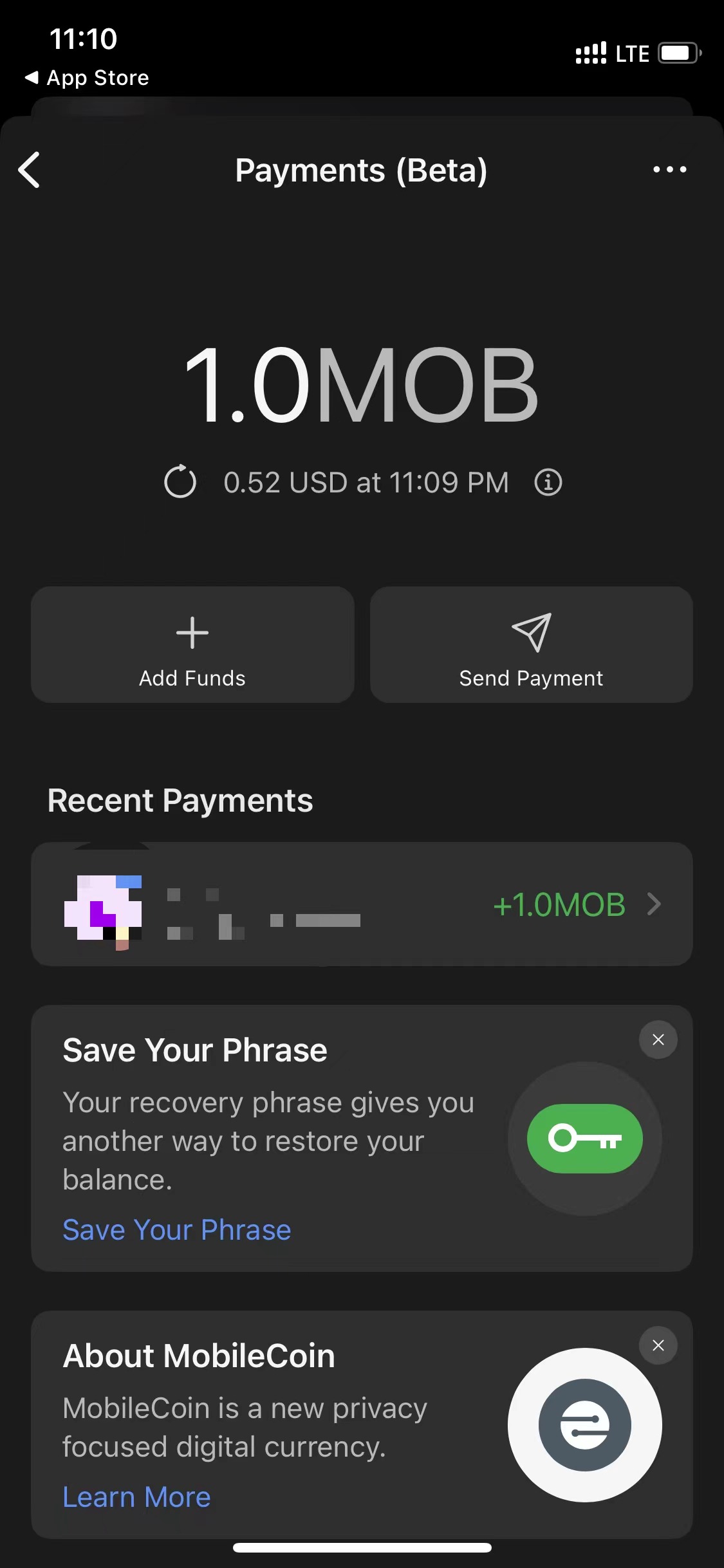[ad_1]
MobileCoin, the startup recognized for building Signal’s crypto payments feature, has appointed a brand new CEO as it really works on increasing its encrypted cash switch service to world customers in want of a extra trendy remittance resolution. Sara Drakeley is taking the helm as MobileCoin’s new chief government officer. Changing her earlier position because the agency’s chief know-how officer is Henry Holtzman, former chief innovation officer at MIT Media Lab.
In an interview with TechCrunch, Drakeley remarked on the important thing position Bob Lee performed in shaping the event of MobileCoin. Lee, who was killed in a fatal stabbing in April, was the CTO of Sq. and creator of the Money App earlier than becoming a member of MobileCoin as chief product officer as a result of he noticed the potential for crypto to allow peer-to-peer transactions on a worldwide scale.
“Money App is simply within the U.S. and what we’re constructing is world,” mentioned Drakeley. “The opposite factor [Lee] acknowledged is that with the normal monetary system, it’s so sophisticated. He would say: ‘You already know, you suppose blockchain is sophisticated. Have a look at the normal monetary system. There are all of those middlemen. You suppose issues are settling immediately, however really, it’s simply queuing up and these large machines will in the end settle at evening.”
“With blockchain, you simply have a single transaction between two events. It’s approach easier,” Drakeley added.
MobileCoin, which has raised over $100 million from traders, together with Binance Labs, plans to finally monetize by transaction charges and value-added companies, similar to lending. “When you’ve received a base economic system and cash shifting by a system, there are many methods to monetize it,” Drakeley mentioned.
Privateness and regulation
In 2021, Sign, the end-to-end messenger in style amongst privacy-conscious customers, launched the beta model of the MobileCoin-powered funds resolution. The function has formally come out of the testing part, permitting any person around the globe to immediately ship MobileCoin’s native Mob token to different Sign customers with negligible community charges — all with out leaving any identifiable trails behind.
The mixture of encrypted messages and nameless transactions has raised fairly a number of eyebrows. Some worry that the know-how might be leveraged by felony organizations to speak, make funds and in the end evade investigations. Up to now, Moby, MobileCoin’s standalone funds app, has partnered with Paybis, which carries out the usual Know Your Buyer and Anti-Cash Laundering procedures within the conversion between crypto and fiat.

What the crypto pockets on Sign appears like when it’s first activated. Picture: TechCrunch
As for regulating on-chain exercise, Drakeley mentioned she feels “promising” about a few of the technological developments that guarantee individuals’s rights to “security and safety” whereas nonetheless permitting them to “abide by the compliance and laws.”
“Id on-chain is a very scorching subject proper now, and many persons are and invested in how that’s going to develop, with the belief that id is a part of the way you in the end clear up AML and KYC. It’s crucial, I believe, to regulators that there’s a holistic id verification resolution,” she noticed.
“There are different items of metadata you could connect to a transaction that may assist set up belief. And that may assist set up that threat profile. These are issues you may connect even in a approach that also protects individuals’s individuals’s information,” the CEO added.
Crypto fee wave
Drakeley, who labored at SpaceX and Disney Animation Studios earlier than becoming a member of web3, is moving into her new position at a time when crypto funds are producing loads of curiosity from traders and builders.
Nigerian startup Kotani, for instance, not too long ago raised $2 million to assist African migrant employees ship cash residence by way of stablecoins. a16z-backed Eco is a participant out of San Francisco touting its crypto-based “global Venmo.”
The differentiator of MobileCoin, in line with Drakeley, is that it helps “non-public” transactions, a distinction to different blockchain-based cash actions of which particulars are publicly out there on-chain. “Are you able to think about if you happen to go to a espresso store, and also you pay to your espresso, and in that instantaneous with that one fee, the barista is aware of your wage?” mentioned Drakeley, including that, not like some Ethereum scaling options, MobileCoin’s community is quick and low-cost sufficient to help microtransactions.
“We as an business have constructed so many applied sciences that don’t have privateness, the place it’s so onerous so as to add that privateness again in. You may see how a lot effort has gone into making an attempt so as to add a Layer 2 of privateness to Ethereum. Even with all that effort, it’s nonetheless probably not fixing the issue, since you’ve additionally received the excessive charges and the period of time it takes for a transaction to settle,” she mentioned.
To make crypto funds sensible for day-to-day eventualities, MobileCoin has spent the final 5 years engaged on its privacy-preserving protocol, initially based mostly on the Stellar blockchain, to energy blockchain transactions that may run even on low-bandwidth cell gadgets. The concentrate on low vitality consumption, particularly, has helped Moby garner curiosity in growing nations with a big remittance influx, similar to Mexico, Nigeria and the Philippines, in line with Drakeley.
[ad_2]
Source link

